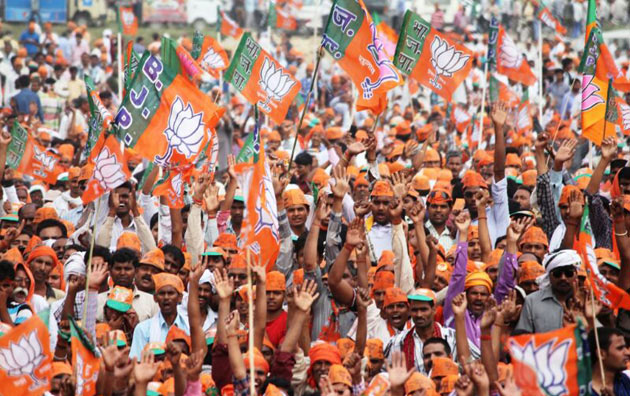The assembly elections in Haryana, Jammu, and Kashmir have delivered surprising results that trounced most exit polls.
Haryana result negates most exit polls

In Haryana, despite exit polls predicting a Congress victory, the Bharatiya Janata Party (BJP) secured a historic third term, breaking the norm of incumbent governments often losing power.
The BJP, spearheaded by a seasoned campaign, not only retained power but did so with a decisive edge, winning or leading in 48 seats out of the 90 in the assembly.
The Congress’s vote share was nearly identical to that of the BJP, but the BJP’s strategic distribution of seats and votes played a crucial role in their win.
The victory is being seen as a testament to the BJP’s organizational strength, its ability to appeal to a broad spectrum of voters, and its ability to effectively navigate caste dynamics and regional issues.
Despite a spirited campaign, the Congress saw its strategies falter. The party leaders’ expectation of leveraging the discontent among certain communities, particularly the Jat vote bank, which they believed was pivotal for a win, had faltered.
Congress’ miscalculations in candidate selection and campaign focus, especially its ignoring of the Ahirwal region, are seen as contributing factors in its defeat.
Jammu and Kashmir elects NC
On the other hand, in Jammu and Kashmir, the election marked the region’s return to democratic participation after a decade, following significant changes to its constitutional status.
Here, the National Conference (NC), in an alliance with the Congress, secured a significant victory, winning 49 seats. The outcome was a clear rejection of the BJP’s governance narrative, particularly in the Kashmir Valley, where the BJP’s performance was notably weak.
The NC’s victory, especially with Omar Abdullah’s dual wins in Ganderbal and Budgam, showed a strong regional sentiment.
Mr. Abdullah vowed to work with the central government to foster regional development.
The BJP, while dominant in the Jammu region, failed to make inroads in Kashmir, probably signaling a deep-seated resistance to the central policies post the abrogation of Article 370. The result might prompt the BJP to reassess its approach towards Jammu and Kashmir, balancing nationalistic policies with regional sensitivities.